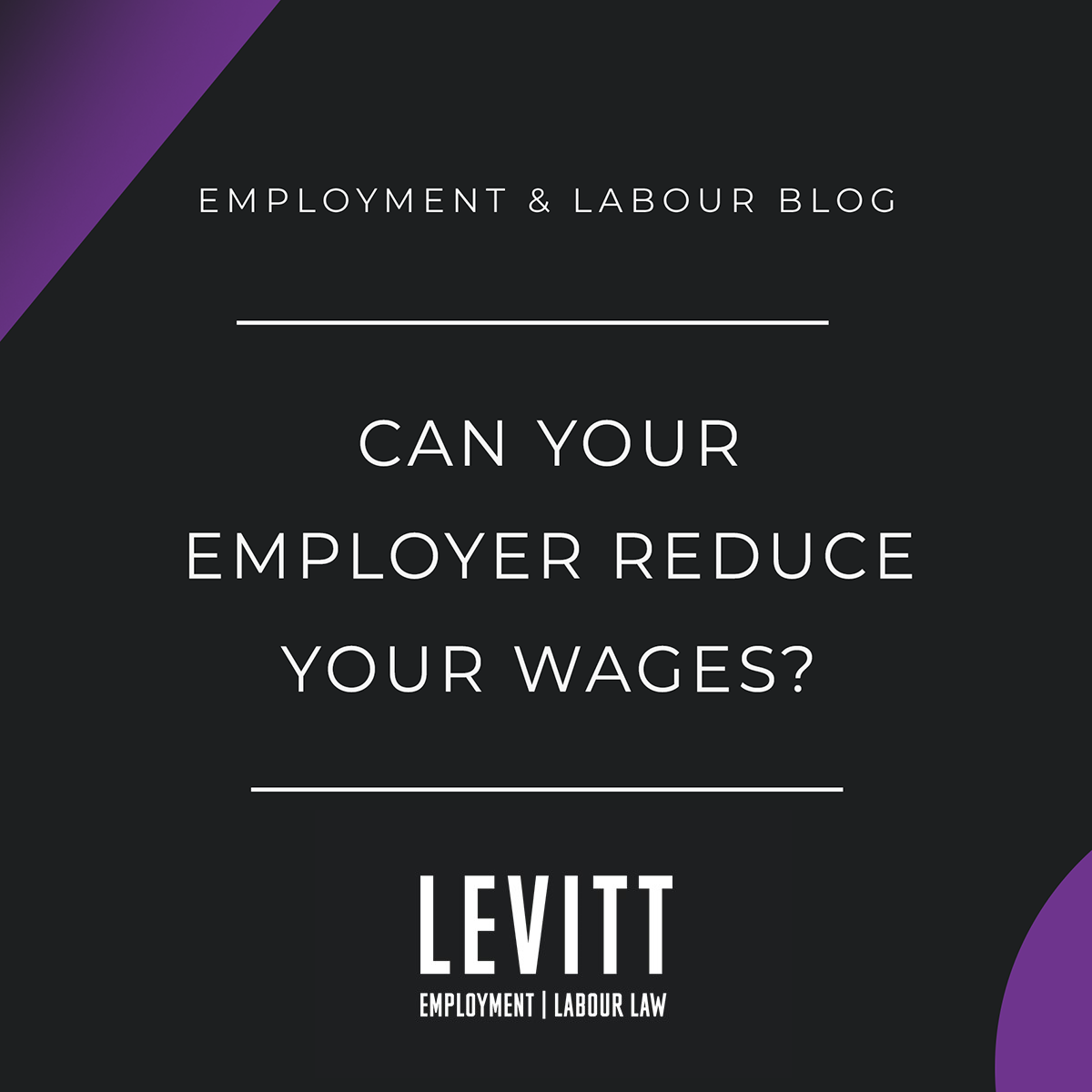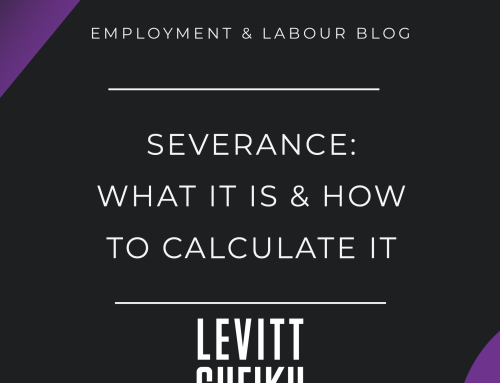Compensation is undoubtedly one of the most important terms of an employment contract. If an employer substantially alters (including by significant reduction) an employee’s compensation without their consent, such alteration may amount to a fundamental breach of contract. An employee whose pay has been substantially reduced can claim that they have been constructively dismissed. In Ontario, a pay cut of 20% or more is considered a constructive dismissal.
Even where a salary change is not significant enough to risk a constructive dismissal claim, employers considering such change should seek to maintain a positive relationship with their employees by respectfully asking for their consent.
Employers should also be aware that a wage reduction is never legitimate in the following circumstances:
- If the employee has not been notified of the salary reduction prior to the pay cut;
- If the pay cut is discriminatory;
- If the wage is reduced to below the minimum wage; or
- If the contract specifically stipulates that the wage rate cannot be lowered and the employer does not renegotiate the contract.
More information on constructive dismissal: What is Constructive Dismissal?
Pay cuts during the COVID-19 pandemic
In the face of the COVID-19-induced economic crunch, many employers have tried to avoid terminations or layoffs by reducing their employees’ work hours or wage rate.
Normally, a significant reduction in wage rate amounts to a constructive dismissal both under statute and at common law.
However, in May 2020, the Ontario Employment Standards Act, 2000 (ESA) was amended to exempt temporary COVID-19-related wage or hours reductions from constructive dismissal claims. The exemption applies to non-unionized employees whose wages and/or hours have been reduced during the so-called “COVID-19 period”, which is the period between March 1, 2020 and six weeks after the day on which the state of emergency is lifted.
The new regulation, O.Reg.228/20, states that if an employee’s wages or work hours are temporarily reduced during the COVID-19 period, due in whole or in part to pandemic-related reasons, this does not constitute a constructive dismissal or a temporary layoff under the ESA.
Under the ESA, an employee’s wages or hours are considered to have been reduced where:
- If the employee has a regular work week, the employee earns less regular wages in the work week than they did in the last regular work week before March 1, 2020;
- If the employee does not have a regular work week, the employee earns less regular wages than the average amount of regular wages they earned per work week in the period of 12 consecutive work weeks that preceded March 1, 2020; or
- If the employee was not employed by the employer during the entire work week that immediately preceded March 1, 2020, the employee earns less regular wages than they did in the work week in which they earned the most regular wages.
The new regulation does not apply in the following circumstances:
- If there is a layoff due to a permanent discontinuation of the entire business;
- If the employment had already been determined to be terminated before May 29, 2020;
- If an employee quits job before May 29, 2020 following a constructive dismissal; or
- If an employee was terminated during the COVID-19 period.
DISCLAIMER:
Remember, this bulletin provides only general information and is not a substitute for legal advice. If you have a legal problem, you should seek out legal advice before making any decisions. The fact that you have received this bulletin from Levitt LLP or have communicated with members of Levitt LLP does not create a lawyer-client relationship.






